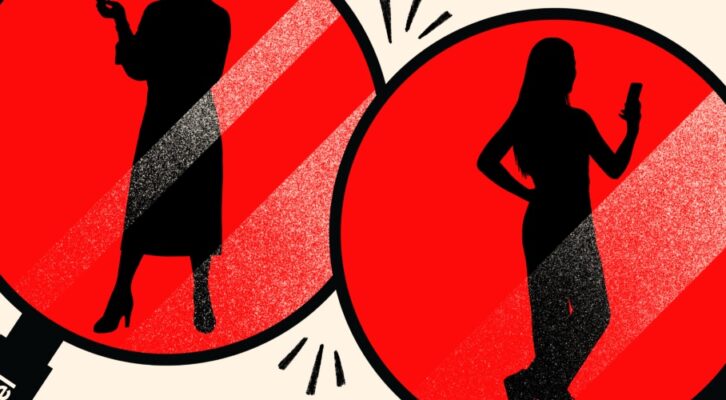Reclaiming David Foster Wallace from the Lit-Bros
Has Anyone Actually Read Infinite Jest?
In a recent essay in New York Magazine, Molly Fischer wrote that David Foster Wallace has become a hero of “bros,” which “drives some women to treat “loves DFW” as synonymous with “is one of those motherfuckers.” She recounts an anecdote that Jason Segel (who plays Wallace in the film The End of the Tour) has told to interviewers in his press appearances:
He’d been preparing for the role by reading Wallace’s work, and he was picking up Infinite Jest at a bookstore. He put the book on the counter and the woman at the register rolled her eyes. “Infinite Jest,” he remembers her saying. “Every guy I’ve ever dated has an unread copy on his bookshelf.”
Fischer makes the important distinction here that the kind of men she’s talking about haven’t actually read Infinite Jest. Neither, it seems, has Fischer. In her essay she quotes from Adelle Waldman’s The Love Affairs of Nathaniel P. and Heidi Julavits’ The Folded Clock, but never from Infinite Jest.
I’m not here to discount Fischer’s point. In fact, I mostly agree with her, that Wallace has become, for a lot of young men, a kind of marker of intellectual ability and hipness. Wallace was a genius who wore bandanas, who treasured his “regular guyness” and spoke with a Midwestern drawl. His sentences, though complexly periodic and usually grammatically perfect (Wallace grew up as a “SNOOT,” as his parents were similarly intellectual), contained countless colloquialisms (most famously his use of “And but so…” to begin sentences), making it seem like Wallace was brilliant but also just a dude, thinking about shit. This is an irresistible figure to aspire to, especially for young men like me. Growing up in Ohio, intellectual dexterity wasn’t exactly the most popular trait one could possess, so flagrant displays of it were kept to a minimum. But to read Wallace—with his seemingly impossible array of knowledge—is to discover a voice that somehow communicates radiant intelligence and “regular guyness.” His writing suggests that you can be smart without being pretentious, academic but still commonsensical, and, just as important, endlessly loquacious (or the written version of it) and still be an introverted neurotic.
Since Wallace’s suicide in 2008, this version of him has lead a lot of people to embrace this image without doing the work of reading his books. Or, at least, this is what everyone seems to suggest. In fact, it is kind of a joke in the literary world. There is a tweet I’ve seen (posted by numerous accounts) featuring a dancing stick-figure person (made out of punctuation) with the words “I’ve actually read Infinite Jest.” To have even read the thing has become brag-worthy. A few years before Wallace died, in a fiction workshop, my professor remarked, in response to a question as to who Wallace was, “He’s the guy who wrote that book that no one’s actually read.” I couldn’t believe he said that. No one’s read it? Really?
Is this really true? Has Infinite Jest become the kind of that people own but haven’t read? Is it like War and Peace or The Recognitions or Gravity’s Rainbow or Middlemarch or The Magic Mountain or The Man Without Qualities? And is the reason no one’s read IJ (or any of these books) is that it’s long? It’s 1,079 pages. Yes, those pages are positively stuffed full of prose, and the endnotes section is in an even smaller font, but still, is this really what’s keeping people from its pages?
I suspect not. People regularly gobble up thousands of pages of, say, George R.R. Martin (total length of the Game of Thrones books, so far: 4,352) or J.K. Rowling (the US editions of the Harry Potter books, in total, also come to over 4,000 pages). Some may say that David Foster Wallace’s prose is much harder to read than Martin’s or Rowling’s, but Wallace is not nearly as inaccessible as Pynchon in Gravity’s Rainbow or Gaddis in The Recognitions. In fact, Infinite Jest is relatively easy to read. Anyone who says IJ is “too difficult,” hasn’t really tried it. (Now, of course, if someone tries to read it and doesn’t like it, that’s something entirely different.)
So why has Infinite Jest, supposedly such an influential novel, become a paper weight, a talking point, a bench-mark of high- and low-brow intellectuality? Why has no one (or, more accurately, why does everyone think that no one) has actually read the thing?
For one thing, I think his death has contributed to this reputation, because it made him famous outside the reaches of the literary community. And much like other figures in small circles whose fame stretches beyond their own world—like Serena Williams in tennis or Tony Hawk in skateboarding—he has become representative of things that really have nothing to do with him at all. He now typifies for people “the young, tortured, brooding intellectual,” a hip guy who’s also way smarter than you are. The fact that Infinite Jest sits there like a brick, filled with long paragraphs and tiny text, only adds to this. A person can, then, glom onto Wallace’s reputation without having read a word of his writing. Because, let’s be real, anyone claiming to love David Foster Wallace who hasn’t read Infinite Jest isn’t really a literary type, are they? I know, of course, that there are people who prefer Wallace’s nonfiction, but those people would be the first to say that (in fact, this has become its own hip assertion).
The irony, of course, is that Infinite Jest centers around a film that’s so engrossing that anyone who sees it literally can’t stop watching it. The film, also called Infinite Jest, represents the inevitable conclusion to our entertainment equation: TV and film so mesmerizing that we never do anything else; entertainment taking over our lives. That Infinite Jest has become a book that no one reads, and that everyone is now talking about Infinite Jest because of a movie—that’s irony Wallace could appreciate.
But what bothers me isn’t that Infinite Jest isn’t read more widely, but that because of The End of the Tour, everyone’s talking about Wallace and his image and what he represents and what he would have wanted and what his fans suggest about contemporary literature… but so many of these little think-pieces leave out the actual work at the center of both Wallace’s career and the movie itself. I have no idea what Wallace would have thought of The End of the Tour (though it’s not hard to think he’d loathe it), but what I do know is that no one is benefiting from continuing to talk about Wallace as if he were only an image and not a person who tried to put what was in his mind to paper. The more we talk about Wallace without talking about his work—which, of course, is the whole reason we’re here, talking about him—the more we aid in this false image of him as bro-lord. His fiction is thoughtful and daring and adventurous and sad and fun and difficult and complex—let’s not reduce this work, or its author, down to something reductive, small, tiny, the opposite of infinite.




















